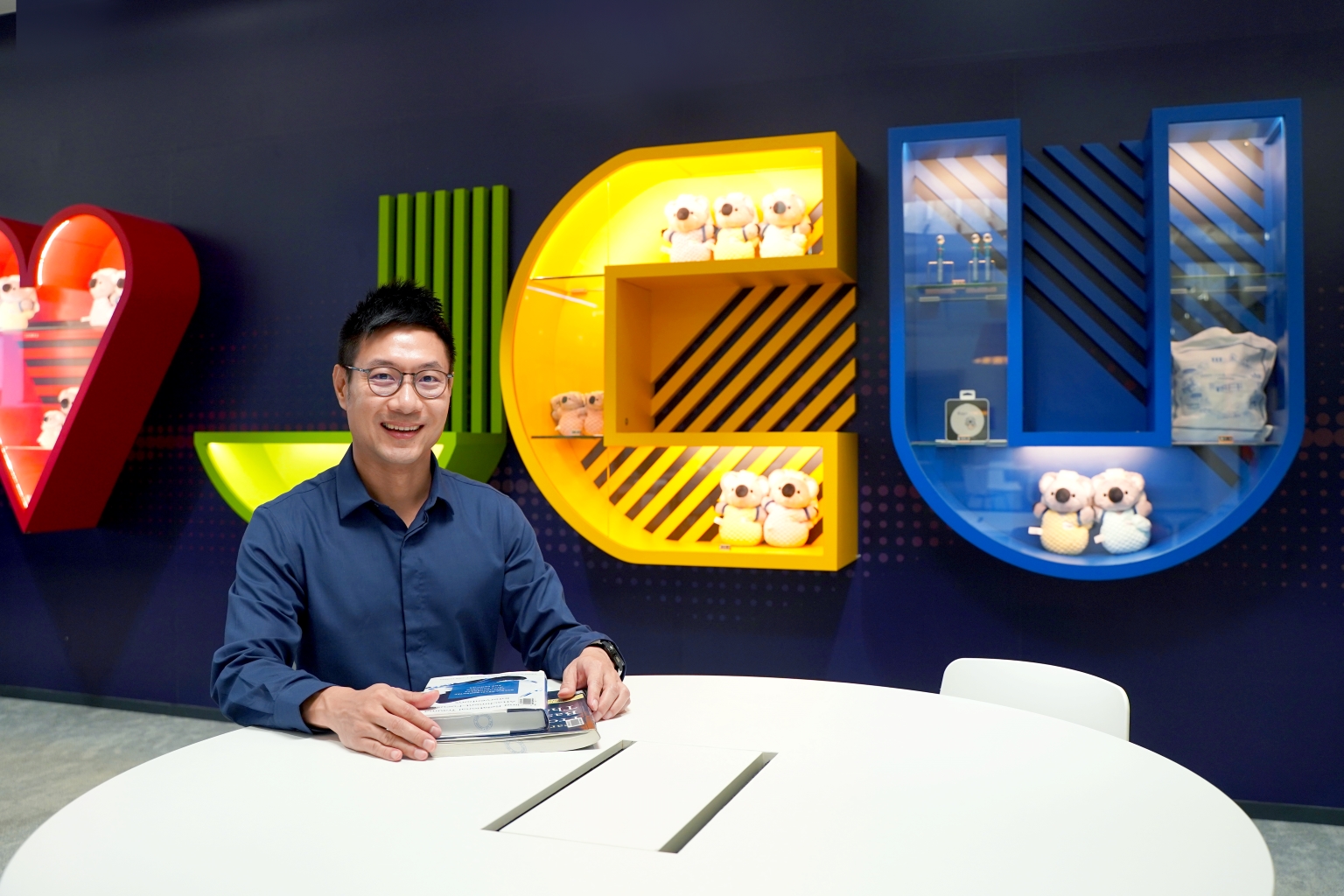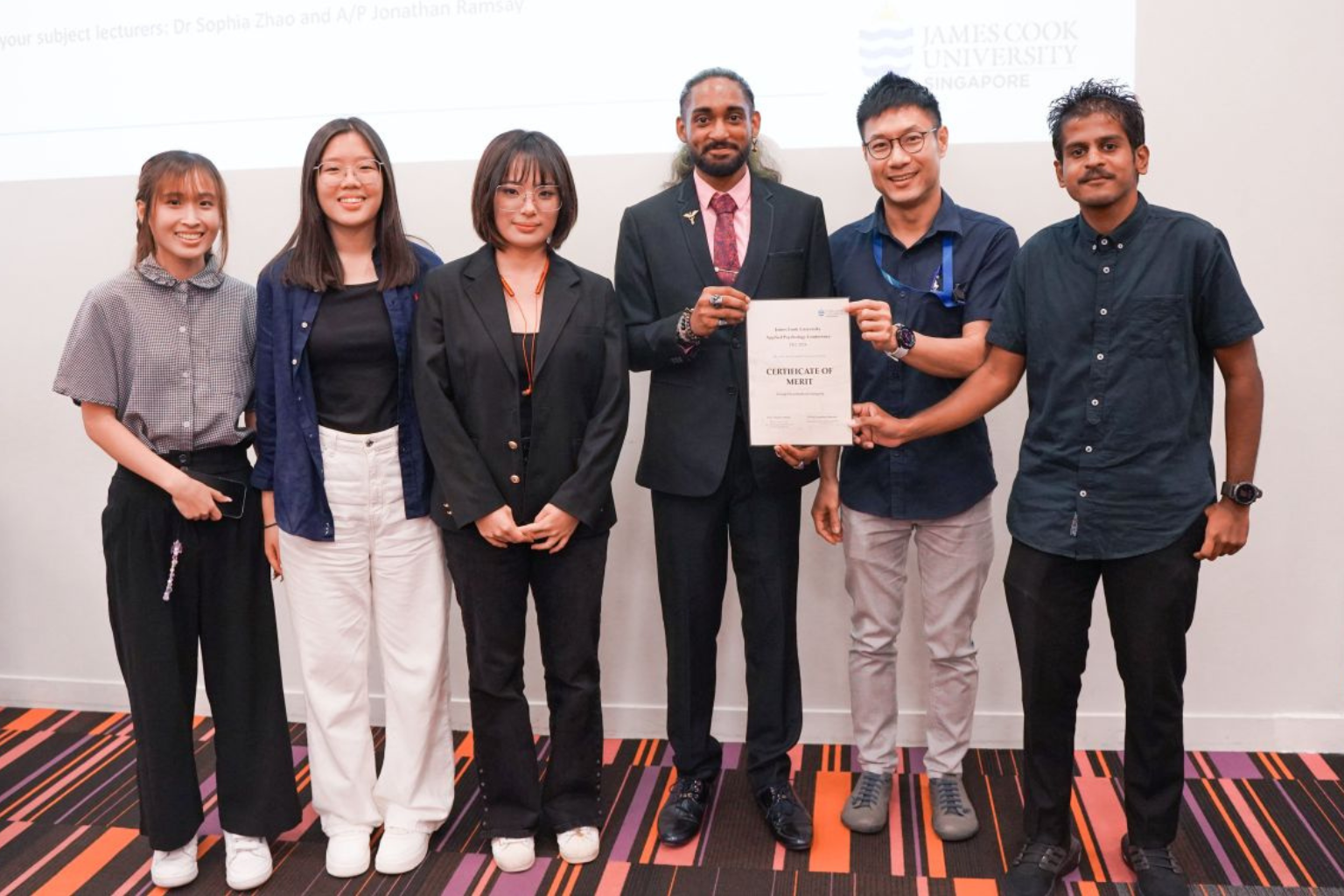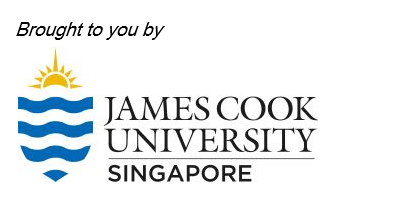BRANDED CONTENT
From bullied child to psychology lecturer: Boyhood struggles shape his career studying the human mind
This World Mental Health Day, Dr Chad Yip shares what motivated him to deepen his knowledge in the field and how he is paying it forward at the Singapore campus of James Cook University

Dr Chad Yip’s childhood trauma inspired him to delve deeper into understanding the mind and human behaviours. PHOTO: JAMES COOK UNIVERSITY
Follow topic:
As a quiet and shy child, Dr Chad Yip was bullied in primary and secondary school. Back then, he would be called hurtful names, intentionally tripped by his classmates and excluded from gatherings during recess time.
Those distressing experiences in school sparked his curiosity about why people behave in certain ways and what drives their actions.
“I had always wanted to understand why my bullies behaved the way they did. When I discovered psychology as a university major and realised that it comprised so many more aspects beyond the behavioural element, I knew it was something for me,” says Dr Yip, 48.
For example, he says, reasons why bullies behave the way they do are often deeply-rooted and multi-faceted, stemming from the bullies’ relationships with their parents and the environment they grew up in. The root causes, he explains, must be addressed by first understanding psychological concepts and theories.
The opportunity to delve deep into the human psyche convinced him to pursue psychology as a discipline at university.
In 1998, he moved to New Zealand to pursue psychology and philosophy as a double major. While his undergraduate degree in psychology did not qualify him to become a clinical psychologist – which required a master’s degree – Dr Yip decided to move to Australia to first gain some work experience and carve out a career in the social service sector.
His work experiences in Australia included roles such as a community services worker, child protection caseworker and health education officer.
Over a decade later in 2012, yearning to contribute in a more significant way, he took the plunge and pursued his higher education at the Singapore campus of James Cook University (JCU) to be qualified as a clinical psychologist.
Diverse opportunities available
The JCU Master of Psychology (Clinical) programme was a natural choice.
“The master’s curriculum at JCU is modelled after the one in the Australian campus, and with Australia’s long track record of training psychologists, it means that the programme is well-recognised in the region,” he explains.

The curriculum’s particular focus on role-playing and practicum – where students provide psychological services at the on-campus psychology clinic and external clinic settings – means that students get to develop well-rounded abilities such as clinical skills, interpersonal skills, empathy and intuition with clients experiencing different psychological issues.
These, Dr Yip says, help them become highly sought-after practitioners – not just as psychologists, but in an array of corporate settings.
In Dr Yip’s case, what started as childhood trauma, as well as an interest in understanding the minds of bullies, evolved years later into a fulfilling career built on a solid understanding of the mind and human behaviours.
After graduating from his master’s programme, he worked as a clinical psychologist at the Raffles Medical Group and the Early Intervention Programme for Infants and Children at the social service agency AWWA.
There, he applied his clinical skills and knowledge gained from the master's programme to assist both adults and children facing various psychological challenges. This included helping children with anger issues who lacked healthy ways to express their needs, and adults suffering from depression due to unresolved trauma.
Later, wanting to raise awareness of the importance of early detection in cognitive decline, Dr Yip made a switch to the corporate world and joined the neuroscience start-up Neurowyzr, where he helped develop a digital cognitive screening tool that could detect early brain decline.
As the head of psychology, his training as a clinical psychologist allowed him to leverage his clinical knowledge, research skills and leadership abilities. His understanding of interpersonal relationships also enabled him to collaborate effectively with various teams and stakeholders within the start-up – a skill that he finds would be “essential in any job role”.
Concurrently, he continued to deepen his knowledge in the field of psychology by pursuing a Doctor of Philosophy (PhD) in psychology, where he contributed to the development of Singapore’s first workplace well-being assessment tool as part of his research thesis. He hopes to eventually roll out the tool for workplaces and develop interventions based on it.
Dr Yip believes the varied scope of his work experiences has been crucial in helping him to better understand what makes people tick.
“Being able to relate to people doesn’t just involve clinical skills – it requires the maturity, wisdom and interpersonal skills that come from rich life experiences. Otherwise, an AI (artificial intelligence) robot can do the job too,” he says.
Giving back to the next generation
Having accumulated a wealth of work experience in the field of psychology, Dr Yip now sees it as his duty to give back to the next generation of students aspiring to carve out purposeful careers – whether as psychologists in the mental health space or in related fields such as social service.
Dr Yip first became a clinical supervisor with the JCU Master of Psychology (Clinical) programme in 2019, followed by an adjunct lecturer in 2022. This year, he took up the role of senior lecturer and hopes to not only help grow the pool and calibre of psychologists in Singapore, but also inspire students to become “better persons” through his own experiences.
In the case of bullying, for example, understanding the multi-faceted reasons that lead to a bullying behaviour means he extols the importance of parenting in his teachings, as some of the students may be parents themselves.
“Textbook learning doesn’t do justice to students. Instead, teaching through my personal experiences is how theories and concepts are made more relatable,” he shares.
Additionally, he hopes to impress upon his students the importance of being “open-minded, curious and courageous” – much like how he had transformed a curiosity about a painful childhood experience into a fulfilling career in psychology.
“The ability to learn from uncomfortable situations is how your wisdom grows and how you develop as a person – no matter the circumstances you started in,” he says.
Find out more about the Master of Psychology (Clinical) programme and the other psychology courses available at the Singapore campus of James Cook University.


